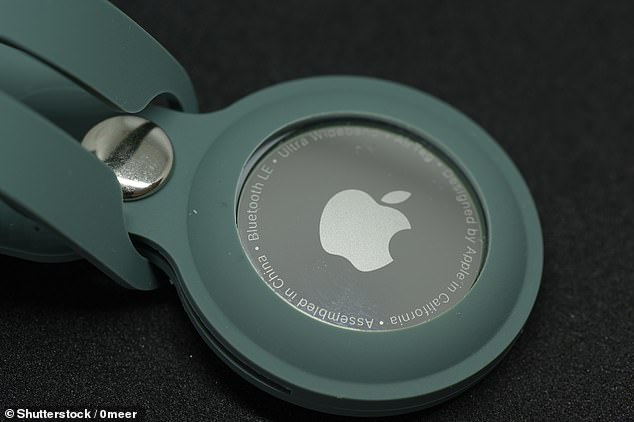Table of Contents
It was without a doubt the worst half hour of my life. My husband and I had taken our three young children (then aged four, three and one) on a pre-Easter holiday to a large resort on the south coast of Portugal.
One afternoon at the end of the holiday we were scattered around the apartment: my husband on the balcony cleaning up after lunch, me in a bedroom putting the youngest to bed for a nap, the other children in the living room, playing with their toys.
Suddenly, I heard my husband shout our son’s name. And then again, and again, with increasing urgency. I ran into the main room, my chest tight. The front door was opening. Our three-year-old son was gone.
We ran out, circling the vacation apartment building, screaming his name over and over. How long had he been missing? Two minutes? Five? Long enough to disappear. Panic flooded every inch of my body.
The complex stretched for miles: dozens of blocks like ours, crisscrossed by countless paths, dotted with pools, bordered by the sea… it could have gone in 20 different directions.
Clare’s son had always been drawn to water like a moth to a flame.
Since it was school time, the place was practically deserted. I went back inside to call the front desk for backup. My husband’s voice kept shouting our son’s name in the distance. Seeing a cleaning staff member, I yelled for them to stand guard outside the door while my baby slept.
I grabbed my eldest daughter by the hand and we ran too, not knowing where to go, screaming for help. She must have looked like someone who was suffering from an extreme psychiatric episode.
After an eternity, I saw a woman about twenty meters away. Perhaps, in retrospect, an angel. “Boy?” she asked with a thick accent. “White T-shirt?” Yes, yes, yes! Where? “Beach…” was the reply, a gesture towards the horizon.
The deserted sand, the cliffs, the choppy waves of the Atlantic… My son had always been drawn to water like a moth to a flame. My son didn’t know how to swim. In the midst of the panic, a thought emerged, clear and black: this is the moment before and after my life; the moment when everything changes. He’s gone.
My husband ran in the direction of the beach, almost a kilometre away. Meanwhile, in a gesture straight out of a Hollywood action movie, I flagged down a passing car carrying an elderly Portuguese couple and (to their amazement) climbed into the back seat with my daughter, shouting that they had to take us to the beach: “Praia! Praia!”
Unfortunately, the gentleman’s hearing aid was probably not working, as we ended up in a parking lot, from where we jumped out and began running towards the cliff steps.
And there, in my husband’s arms, was my son. Alive. His shirt was wet. He had been at the edge of the Atlantic, in the mouth of the snarling beast, but he was safe.
To my sickening surprise, our three-year-old had walked nearly half a mile, crossing two quiet streets, to return to the beach we had visited every day of the vacation. For months afterward, the “what ifs” plagued me daily.
This terrible episode has left me feeling anxious about my missing children, so I was interested to see the tactics employed by Mike and Zara Tindall over the weekend. Their ten-year-old daughter Mia was photographed at an event with an Apple AirTag attached to her shorts.

Clare’s traumatic experience meant she was interested in hearing about celebrities putting Airtags on their children.
The device, which costs £35 and was launched in 2021, was designed to be attached to laptops, keys or bags, so that owners can track these items via an app if they go missing. But parents like Mike and Zara are increasingly using them to keep an eye on their children.
To some traditionalists this will seem like an overprotective and scandalous form of parenting. Those of an older generation might speak ruefully of how they played out of sight of their parents, exploring woods and fields unencumbered by any surveillance devices.
Others might insist that it’s for parents to keep an eye on their children, not for some Bluetooth-enabled companion to falsely comfort them. In theory, I agree with these arguments; in practice, if there’s anything that could reduce the risk of harm to your child, wouldn’t you take it? It might be wrapping them in cotton wool, but it’s invisible technological cotton wool that doesn’t impede their play.
So, if I were allowed, I would go even further. Since that horrible episode, I have thought that I would like my children to be fitted with tracking chips, like the rice-sized microchips given to pets, but with GPS to know where they are in real time.
Yes, I know that civil libertarians might complain about the violation of a child’s privacy and the invasive nature of such technology.
I also know that children need to learn to be responsible, rather than always being tied to a technological leash. But frankly, if you’ve experienced the terror of losing a child for more than five minutes, you’re willing to do almost anything to avoid feeling that terror again.
Budgeting advice for Ben and Kristina

Former rugby player Ben Cohen and ex-Strictly professional Kristina Rihanoff have appeared in court after she was caught driving without insurance. Ben claimed they are in dire financial straits and are “struggling to keep it all together”. I sympathised until I read that she drives an Audi Q3, which costs £7,500 a year to insure. Maybe they could start tightening their belts by swapping it for a cruiser?
It is a joy to reach middle age.
British universities continue their urgent search to find something – anything – to take offence to.
This week, Bristol and York St John have decreed that the term “middle-aged” is offensive, presumably because it smacks of unwanted nose hair, comfy jumpers no longer being cool. Well, as someone who, at 43, is already firmly in middle age, I see it as a badge of honour.
I’m enjoying all the middle-age clichés: gardening, being fascinated by local history, having no idea about the top ten songs on the charts.
And what’s the best thing about being middle-aged?
Recognizing that these progressive decrees are a bunch of nonsense.
Why do we continue to bow to royalty?

Jude Law – who is receiving critical acclaim for his irascible portrayal of King Henry VIII in the new film Firebrand – has risked causing a stir by saying he does not want to bow to royalty. I agree. Bowing and curtseying in the 21st century seems hopelessly old-fashioned. Like the medieval fashion of kissing the feet of monarchs, these practices should be quietly retired. While I bow to no one in my support of the royal family, I also feel that I should bow to no one.
- A report by the National Health Service Confederation suggests that GP practices could be provided with “job coaches” to help combat unemployment. Let’s not run before we can walk. How about making GPs the first to pick up the phone to see patients?

